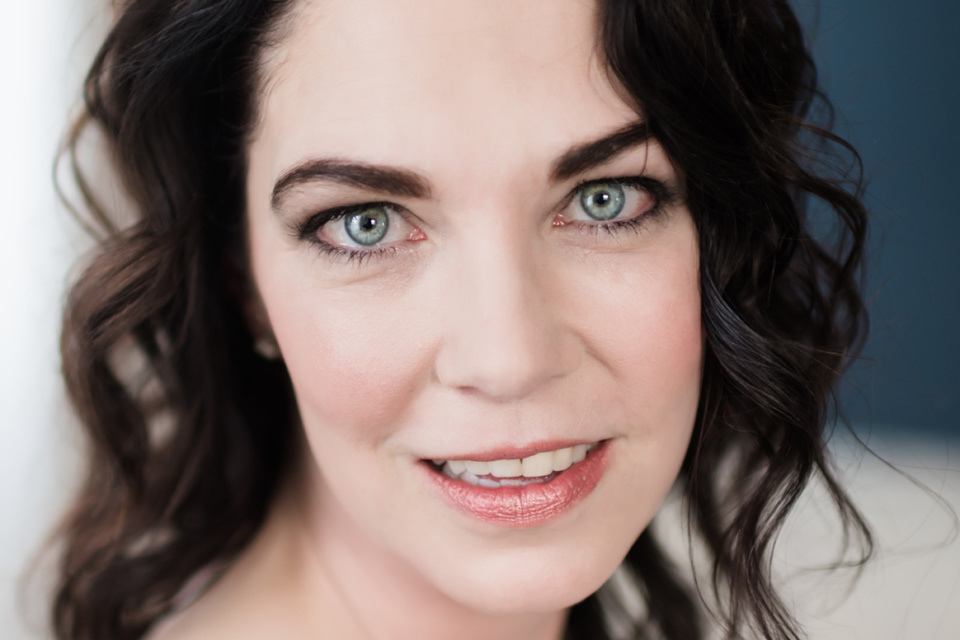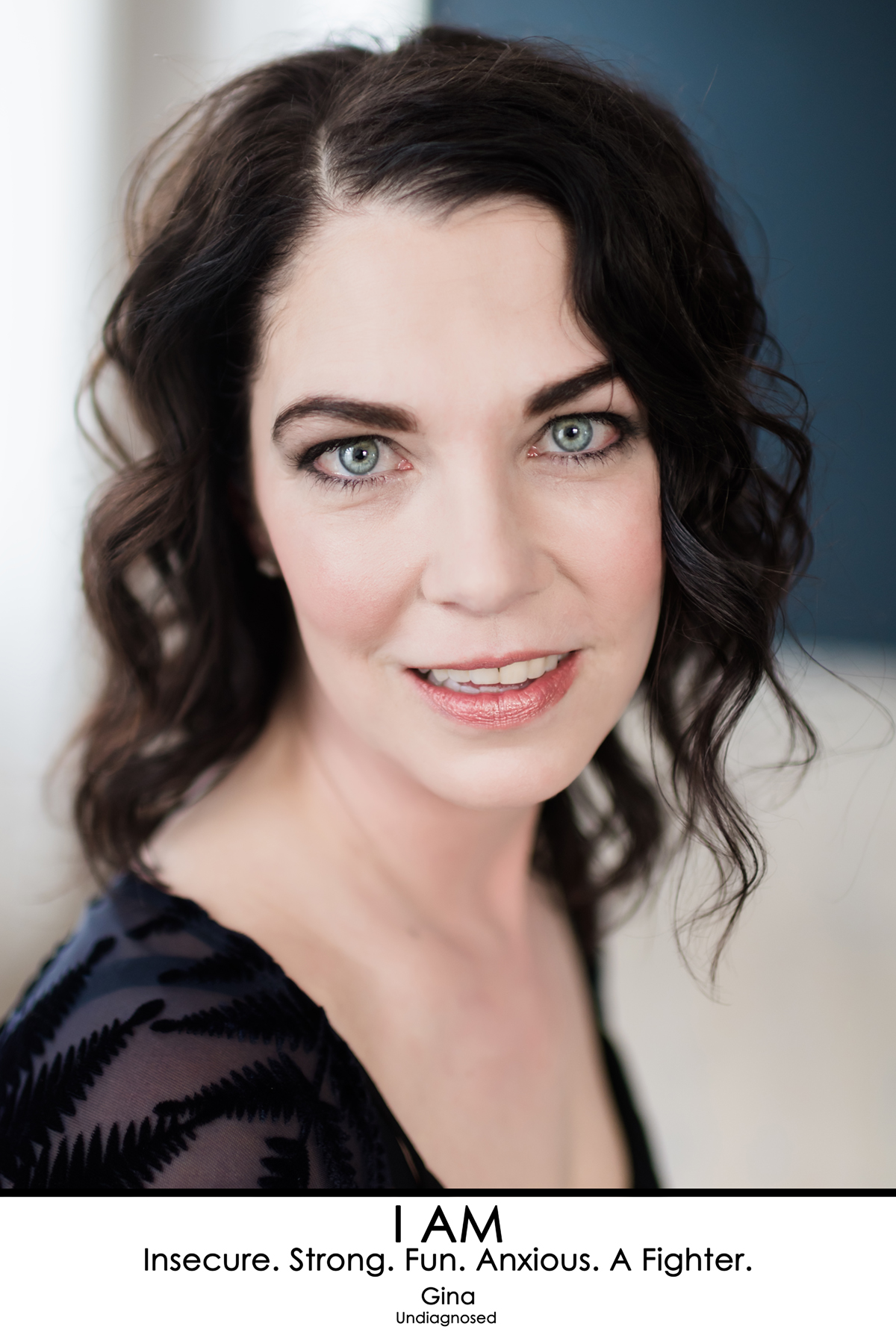Photo by Season Atwater, Aware of Angels
The Basics
Name: Gina Szajnuk (pronounced Zanik)
Title: Co-founder and Executive Director
Organization: Rare and Undiagnosed Network (RUN)
Disease focus: Undiagnosed rare disease, but I also focus on all rare diseases.
Headquarters: Park City, Utah
How did you become involved in rare disease: I am the mother of three children who suffer from an undiagnosed rare disease. I am also undiagnosed. In 2014, we started RUN because I didn’t want another mother to go through what we went through with our oldest daughter, Ava, in 2013. We almost lost Ava to a subdural hygroma (a buildup of cerebrospinal fluid under the membrane that surrounds the brain). She had four cranial brain surgeries and is now shunt-dependent.
Previous career: I was a stay-at-home mother after I had Ava. Prior to that, I worked in the world of entertainment in Hollywood, the NBA/NFL agency business in Chicago (where I met my husband, Justin Zanik), and in private equity companies in Manhattan.
Education: B.A. Communication Arts from the University of Wisconsin, Madison.
The Organization
Organization’s mandate: We want to empower rare and undiagnosed patients and their families with genomic information and community through advocacy, networking, and support.
Organization’s strategy: Our strategy is to bring all rare disease stakeholders together to break down silos and to create collaboration and global cooperation.
Funding strategy: My funding strategy needs a lot of work. We were able to raise public funds for our Utah Rare program in 2016. However, in 2017, my husband and I relocated twice. We need to work on our strategic funding strategy in 2018.
What’s changing at your organization in the next year: RUN has been approached by many different collaborations already this year. I look forward to seeing where they all take RUN in the next year.
Management Style: There are only volunteers that help with RUN. There are no paid employees. I’m very thankful to everyone that helps to support RUN and to build our network. My management style is happy tears when I receive the support.
Management philosophy: I believe that everyone in the rare and undiagnosed community has a reason to have a seat at the table. I believe in trusting my families and the rare disease stakeholders to be good people. I have been burned several times. I need to put my guard up more, but I like to believe that everyone in my inner circle has my back and I have theirs.
Guiding principles for running an effective organization: RUN’s guiding principles for running an effective organization are to be completely transparent. My heart is pure, and I am only doing this to help our rare and undiagnosed community to find answers, treatments, and cures. We are all learning together. This world of the unknown is just that—unknown. I think realizing just how huge the issues are for the undiagnosed and rare community helps to guide our organization to be the best that we can be and to work hard to benefit the community with the help of all rare diseases stakeholders. Collaboration is the key.
Best way to keep your organization relevant: Unfortunately, keeping our organization relevant means sharing our journey as much as we can. Some days I feel overexposed, but I hope people know that it is because we still do not have a diagnosis and my children suffer in pain every single day. I think sharing more and more other families’ stories is also key to keeping relevant. I’m working on more blogs to share their stories and I hope that keeps RUN relevant as well.
Why people like working for you: I do not have anyone working for me. I only have people working with me. I am honored to walk this walk with my rare brothers and sisters. They become instant family. When I mentioned my inner circle, it’s pretty large because I fall in love with these families. They have saved me when I need to be saved and I hope they feel the same way about me. I have watched my advisory board grow over the last few years, and I am so honored to have them all in our lives.
Mentor: I have a lot of mentors. My mother has been my mentor all of my life. She raised four kids under the age of six and worked full-time when most mothers were not working. She was one of the first women in real estate back in the 1970s. She had her own radio show and was very successful within the University of Wisconsin Alumni Association, where she served on the athletic board for years. As far as in the rare diseases community, I have to say Cristina Might was my biggest mentor when we started working on Utah Rare together. Her path on this journey is further along as she has a diagnosis for her son and they are working on connecting with families all over the world and working on a treatment for their disease of NGLY1 deficiency. I also have to mention Season Atwater and Anne Bruns. We kind of mentor each other. Amylynne Santiago Volker is a mentor too. Her son, Nic, was the first child saved by DNA sequencing. She happened to live only a few miles from my parents when Dr. Howard Jacob connected us. On a bigger scale, I feel like NORD, Global Genes, and RDLA have mentored RUN. Nicole Boice from Global Genes has been a mentor. Tim Boyd with NORD has been like a big brother. Stephanie Fischer, previously with RDLA, has been a mentor. Reid Robison and Josh Forsythe, previously with Tute Genomics have been mentors. The list really goes on. I was embraced by the community and feel honored and blessed.
On the Job
What inspires you: My family. My three children inspire me every single day. And, always my RUN families. Charlee Nelson is a huge inspiration. She was the first rare angel that came into my life. I didn’t even have the blessed honor of meeting her in person, but I met her family back in 2014 and fell in love. Each and every single family inspires me. When I get a phone call from a new mom just starting on this horrible journey, and we walk through next steps, and they say, “Thank you so much. I felt so alone. Now I know I have this community and you to support me.” That inspires me. Also, watching new advocates inspires me. Watching Julie Potter and Jen Summers rock the State House events the last two years really inspired me.
What makes you hopeful: I lost a little of our hope this past year with the realization that our whole genome sequencing results did not give us a smoking gun gene. We had our incredible team of doctors all get on a conference call and came back to say that we just need science to catch up. What does make me hopeful is that my kids are doing well cognitively, and they are adjusting to what their new normal is for now. They make me hopeful that even if we never get a diagnosis, we are still a fun family and we love each other. My daughter even spoke at the Utah State Capitol on Rare Disease Day. Watching her grow into a public speaker and sharing her journey, she gave me hope for the next generation to continue on with our fight and our advocacy.
Best organization decision: To be collaborative. To be inclusive and not exclusive. To be transparent to all of the rare disease stakeholders and make it known that I love to work with everyone and that collaboration is so important to push forward in the rare disease community.
Hardest lesson learned: I think the hardest lesson learned was just recently. I looked back at all of our RUN families. I met most of them in 2014. When I look at their journeys, not one of them has had a happy ending. There are no positives as far as treatment and pain free living. I am not a huge Facebook person, but when I log in to check on families, all I see is pain, more surgeries, and more appointments. I was very naïve when I came into this space. I thought whole genome sequencing would give everyone a diagnosis, treatments were going to be quick, and cures would be coming left and right. It is not the case at all. This is a huge public health crisis.
Toughest organization decision: I think the toughest organization decision is that I have to decide between time with my children and time to heal myself, or I have to choose sitting in my office on my computer and traveling around the country. My heart hurts for the lost time with my children over the past four years since I started RUN. I know they are proud of me and support me. My husband does too, but I do need to have boundaries and set some limits. My heart seems to be torn either way—working or not working.
Biggest missed opportunity: I started RUN’s NBA Initiative in 2015 with the Utah Jazz. I could really do something big with this and bring our advocacy outside of just the rare and undiagnosed community. There is just not enough time in the day. I did a lot last year, but this year I only have two games—one is tonight with the Milwaukee Bucks. We have a suite for the families tonight. The rare kids will be on the court with the Utah Jazz on March 17. There is always next year, right?
Like best about the job: What I like best about the job are the families that we have met along the way and the medical teams we have met as well. I like to learn new things in the world of genetics too.
Like least about the job: Why we are here in the first place. We all have a disease process and we do not know what the root cause of it is, and how it is going to progress. I also do not like seeing so many families suffering from emotional, physical, and financial ruin. It breaks my heart.
FUN STUFF!
Pet peeve: People smacking their gums when they eat.
First choice for a new career: Going back to being a stay-at-home mom, or I would love to be a movie producer. It was always my dream and why I spent my 20s out in Hollywood.
Personal Taste
Most influential book: A friend of mine gave me a book in college called Women Who Run with the Wolves: Myths and Stories of the Wild Woman Archetype Clarissa by Pinkola Estés. It has stayed with me through all my many moves. I read chapters out of it every once in a while. Also, The Angels within Us by John Randolph Price. When I was lost in my 20s and took a year off from school, this book guided me through a troubled time.
Favorite movie: I have to go back to The Bodyguard. I love that movie. I’m a huge movie fan, so I could list a hundred favorite movies.
Favorite music: Country music is my favorite, but we love Rachel Platton. Most recently, we are obsessed with This Is Me and From Now On from The Greatest Showman. If you listen to the lyrics of This Is Me, it fits our rare and undiagnosed community:
Look out ’cause here I come
And I’m marching on to the beat I drum
I’m not scared to be seen
I make no apologies, this is me
It just makes me cry and dance every single time we listen to it. From Now On hits home as well. We have moved five times in six years, and the lyrics we will come back home…home again, also makes me cry and dance every time.
Favorite food: Right now, since I’m supposed to be gluten and dairy free because of my illness, it’s chips and guacamole. I love my husband’s Caesar salad, roasted brussels sprouts, and a petite filet too.
Guilty pleasure: Chocolate. My kids tease me because there are always chocolate wrappers by my bedside in the morning. They always say, “MOM!”
Favorite way to spend free time: Being in Wisconsin in the summers. We stay with my parents in Madison, Wisconsin, since Justin is working hard on the NBA draft and Summer League. We spend our days swimming in their pool, boating, and time with my siblings and their families. I love my summer lazy afternoons back home. During the school year here in Park City, we love to spend our free time as a family watching movies in front of the fireplace. They all have their spots and we cuddle. Movies help us escape out of our pain.


